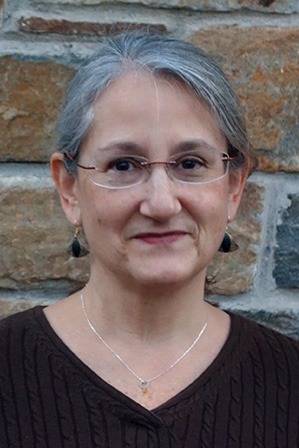Picking Up the Pieces
Letter from the Editor
BY SHAWN DORMAN

We welcome the new year and the chance to leave 2020 behind. The incoming administration will take the helm of a diminished State Department and Foreign Service coming off four years of a systematic degrading of public service, diplomacy and professionalism.
Rewind to January 2017. My editor’s letter asked: “Will the incoming administration realize that diplomacy is managed and foreign policy implemented by professional public servants, members of the Foreign Service who have sworn an oath to the U.S. Constitution? Hopefully, yes. And, hopefully, they will turn to the professionals staffing the foreign affairs agencies and welcome their input, value their experience, and utilize their deep knowledge and understanding.”
They did not. To what end?
That question—posed by then AFSA President Ambassador (ret.) Barbara Stephenson in her December 2017 column, “Time to Ask Why”—remained unanswered while the damage continued. Much of the mentor class was summarily pushed out of the Service. Hiring freezes took a toll, important positions went unfilled and politicization rose to a high point.
Every new administration makes its mark on the U.S. Foreign Service. Some build it up (Diplomatic Readiness Initiative, Diplomacy 3.0); others deconstruct it (the McCarthy era, the Redesign). Secretaries Colin Powell and later Hillary Clinton prioritized growing the Foreign Service, adding to the ranks to create the ever-elusive “training float.”
The Iraq War took away those gains by shifting staff from other posts to fuel that massive effort—a “tax” that still echoes today, as losing posts did not get those positions back and remain understaffed and underfunded.
Exploring the past 100 years in the FSJ digital archive, it becomes clear that ups and downs have been recurring—bouts of “worst times” for the Foreign Service alternate with attempts to reform and reimagine the strained or threatened system. This is one of those latter moments.
The incoming team is pro-diplomacy, pro-development. Some are career diplomats. (Some are even AFSA members.) There is a good chance they will pay attention to new ideas. And there is room for optimism that positive reform may be possible and is, indeed, on the horizon.
This is the right time for the Journal to highlight ideas for reform. In recent months, major reports offering bold recommendations have been released. In this edition, we take a close look at several of them and summarize proposals being pitched to the new administration by a few heavy-hitter diplomats and scholars.
Our lead story looks at the 10 recommendations from the Harvard Kennedy School’s Belfer Center study—“A U.S. Diplomatic Service for the 21st Century”—through excerpts from a discussion AFSA President Eric Rubin had with the authors of the report: Ambassadors (ret.) Nicholas Burns, Marc Grossman and Marcie Ries.
We summarize three other new reports on boosting U.S. diplomacy, from the Council on Foreign Relations, Carnegie Endowment for International Peace and the Center for American Progress.
In “Recommendations for Action,” the Association of Black American Ambassadors offers a set of measures to foster diversity, inclusion and anti-racism at State and USAID.
Freedom House President Michael Abramowitz suggests how U.S. diplomats can address the global weakening of democracy. Ambassador (ret.) Laura Kennedy discusses how to get State back into the critical work of nuclear arms control and nonproliferation.
Ambassador (ret.) Gordon Gray reflects on lessons from the Tunisian revolution that sparked the Arab Spring. And on the 40th anniversary of the release of the Iran hostages, Ambassadors (ret.) John Limbert and Marc Grossman offer an excerpt from their novel, Believers. The 2020 Tax Guide rounds out this edition.
We invite you to review the recommendations in the reform articles and offer your own input for the new administration, which will be featured in the March FSJ, along with a new piece on risk management from Ambassador (ret.) Ron Neumann and Greg Starr.
We are collecting concise responses to this question: “How can the new administration reinvigorate U.S. diplomacy and development through the Foreign Service, and what are your specific recommendations?” Please send your note to journal@afsa.org by Jan. 7.
Here’s to renewed U.S. diplomacy and development in 2021.

